Dr. David Harris, a urologist in Fort Myers, FL talks about understanding benign prostate hyperplasia and its treatment options.
Continue readingDiscover Exceptional Urological Services at Advanced Urology Institute’s Fort Myers Office
What is the diagnosis and treatment for prostate cancer by Dr. David Harris?
The first step in diagnosing prostate cancer is obtaining a biopsy, which provides crucial information. Learn more from urologist, Dr. Harris.
Continue readingWhat are the treatment options for kidney stones?
Not many medical problems are as frustrating and as unbearably painful as kidney stones. With urinary stones, you experience a severe, sharp pain in your side and back. The pain comes in waves, fluctuates in intensity, and radiates to the lower abdomen and groin.
Continue readingVaginal Dryness: Causes, Symptoms, and Treatment
How Does UroLift Procedure for BPH Work, According to Dr. David Harris?
What Causes BPH, and How is it Diagnosed & Treated by Dr. David Harris?
What is the Prevalence of Erectile Dysfunction, According to Dr. Harris?
Kidney Stones: Who is at Risk
Kidney stones are a common medical issue that arises when hard deposits of minerals form in the kidney and can affect the urinary tract. These stones can cause severe pain in the abdomen and groin, nausea, and pain during urination. Kidney stones have no single or set cause. Anyone is at risk of developing kidney stones at some point in life.
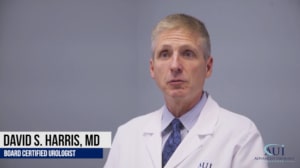 Although anyone can develop stones, there are certain factors that can indicate who gets them and how they occur. As urologist Dr. David S. Harris states, “There are certain features of a person’s stone history that are predictors to us if they’re going to have more stones.” A patient suffering from kidney stones will want to consult a urologist to see what can be done to limit the chances of developing kidney stones in the future.
Although anyone can develop stones, there are certain factors that can indicate who gets them and how they occur. As urologist Dr. David S. Harris states, “There are certain features of a person’s stone history that are predictors to us if they’re going to have more stones.” A patient suffering from kidney stones will want to consult a urologist to see what can be done to limit the chances of developing kidney stones in the future.
A urologist may want to do a urine or blood analysis to see if there are any reasons for a patient to develop kidney stones. A urologist also may want to address some common risk factors for kidney stones. For instance, dehydration is a very common cause of kidney stones. For this reason, people who live in warm climates and are at greater risk of dehydration are also at greater risk of developing kidney stones. A urologist may recommend that someone living in a warm climate like Florida drink plenty of fluids every day.
People with diets high in salt, protein and sugar are also at increased risk of developing kidney stones. Too much salt especially increases the amount of calcium a person’s kidneys must filter, increasing the chances of stone development. Obesity also increases the risk of developing kidney stones, so weight management is something a urologist will strongly recommend if that is a factor.
Beside dehydration and dietary choices, genetics can play an important role in an individual’s risk of developing kidney stones. If someone in your family has kidney stones, then you are more likely to develop them as well. And once you develop kidney stones you are at a greater chance of developing stones in the future. For this reason, in addition to adjustments in water intake and diet, urologists sometimes will recommend medications.
Just because someone has had kidney stones before doesn’t mean they will have to suffer with them the rest of their lives. At the Advanced Urology Institute, doctors work with their patients to find and correct root causes for kidney stones. For more information, visit the Advanced Urology Institute website.
How Does Dr. David Harris Diagnose & Treat Bladder Cancer?
Understanding Common Prostate Problems
The prostate gland is a uniquely male body organ. It is small, walnut-shaped and located just under the bladder. The urethra passes through it, carrying both urine and semen. Its main job is to make fluid for the semen.
Many different prostate problems have similar symptoms. If a person experiences these symptoms, it is time to see a urologist. For example, a man may find his urine flow to be too slow or have difficulty urinating. Or he may have the sudden uncontrollable urge to urinate that can cause leaking. Occasional leakage may occur if the urge comes when there is no restroom nearby.
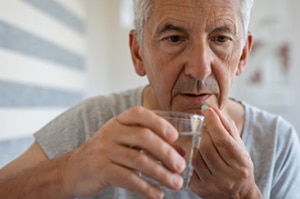 But if such urges happen frequently and too quickly to reach facilities, there may be a problem. If there is a need to struggle or strain to maintain a urine flow, or if the flow is abnormally slow for more than a few days, it is time to talk to your doctor. Pain in the scrotum or penis or a feeling that the bladder is still full after urinating can be indications of a problem. Any combination of these symptoms should be reason to contact a urologist or your primary care doctor as soon as possible.
But if such urges happen frequently and too quickly to reach facilities, there may be a problem. If there is a need to struggle or strain to maintain a urine flow, or if the flow is abnormally slow for more than a few days, it is time to talk to your doctor. Pain in the scrotum or penis or a feeling that the bladder is still full after urinating can be indications of a problem. Any combination of these symptoms should be reason to contact a urologist or your primary care doctor as soon as possible.
Some symptoms require prompt attention. You should go to an emergency room if your urine has blood in it or a cloudy appearance, if it develops a very strong unusual smell or if you experience severe pain when urinating. Seek immediate medical attention if you develop a fever, chills or strong body aches in the pelvic region.
Prostate cancer is the most frequently diagnosed cancer in men. Nearly one out of every ten men will develop it in their senior years. Most prostate cancers grow slowly, so quality of life over a long period of time is the issue. There are many effective treatments that, unfortunately, have side-effects men find difficult to discuss. Although prostate cancer is not necessarily a terminal illness, it can be. It is important to see a doctor about symptoms because an early diagnosis increases the likelihood of successfully managing and outliving the condition.
PSA tests are good indicators of the health of the prostate, but slowly increasing levels may mean doing more testing. A PSA test looks for a prostate-specific antigen (PSA) in the bloodstream. Modern medical science is still trying to figure out how quickly and how much to do when PSA tests are abnormal. Your urologist will have the latest information for determining proper treatment.
Benign prostatic hyperplasia (BPH) is one medical condition that, like cancer, often has no clearly known reason for happening. Doctors do know that it often responds to certain types of treatments, albeit not the same way for each person. Any change in the size of the prostate, such as from cancer or from an enlarged prostate, puts pressure on the urethra, affecting urine flow and the ability to properly urinate.
The board-certified urologists at the Advanced Urology Institute are all qualified to diagnose and treat prostate problems with the best options available today. For more information, visit the Advanced Urology Institute website.
Prostate Cancer Treatment: How to Choose What’s Best for You
Prostate cancer is one of the most common types of cancer that affects men. The prostate is a small gland, similar in shape to a walnut, that produces the seminal fluid that helps transport sperm. Although anyone can get prostate cancer, it becomes more common as men age.
It can be difficult to detect prostate cancer as it has little to no symptoms in its early stages. For this reason, it is important for men to have their prostate routinely checked by their doctor. Only after the cancer advances do symptoms occur like trouble urinating, blood in semen, bone pain, erectile dysfunction and discomfort in the pelvic area.
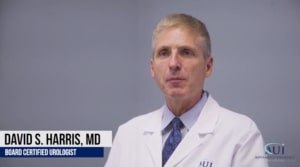 Some prostate cancers grow slowly and, in some cases, need little to no treatment. Other cancers can be aggressive and spread quickly. It is important to see your urologist often to monitor your cancer, as the best treatment for you will depend on the type of prostate cancer you have and how it reacts to treatment.
Some prostate cancers grow slowly and, in some cases, need little to no treatment. Other cancers can be aggressive and spread quickly. It is important to see your urologist often to monitor your cancer, as the best treatment for you will depend on the type of prostate cancer you have and how it reacts to treatment.
Treatments for prostate cancer vary depending on multiple factors. Urologists will look at a patient’s age, health and the type of prostate cancer when deciding on the best treatment. In a healthy young patient, a urologist may recommend robotic surgery or a radical prostatectomy. These are well-tested and invasive treatments that can produce very good outcomes.
For patients who may be a little older and not in the best of health, radiation therapy may be their best option. Having access to quality radiation therapy can be a game changer in prostate cancer treatment and can create excellent outcomes. It also will be easier on a patient with other health issues.
There are also newer advances that can be used to treat prostate cancer. For example, cryotherapy uses extremely cold temperatures to destroy cancerous tissues in the prostate by freezing them. Another example is HIFU therapy. This stands for stands for High Intensity Focused Ultrasound and uses an intense ultrasound, focused on the prostate, to treat the cancer and is minimally invasive.
Prostate cancer is a serious and often frightening prospect. Many men will suffer from this cancer, but they are not alone. Along with their urologist, men can combat their cancer in a way that produces the best outcomes. Dedicated urologists, like David S. Harris, MD at Advanced Urology Institute, have an arsenal of treatment options and are ready to help men live healthy lives. For more information, visit the Advanced Urology Institute website.
Treatment Options for Benign Prostatic Hyperplasia
Benign prostatic hyperplasia (BPH) is the clinical term for an enlarged prostate. An enlarged prostate presses on the urethra which passes through its middle. This causes difficulties with the passing of urine, such as urine retention, weak urine stream or a frequent and sudden urge to urinate. If left untreated, it may lead to urinary tract infections and bladder complications. Benign Prostatic Hyperplasia is not cancerous and it is normal for men over age 40 to start manifesting symptoms. The condition is highly treatable.
Treatment Options for Benign Prostatic Hyperplasia
The treatment is determined by the age and general health of the patient, the size of the patient’s prostate and the severity of the symptoms. After making an evaluation based on those factors, a urologist will recommend either of the following options:
1. Oral Medication
Mild cases of benign prostate hyperplasia respond extremely well to medication. The available medication falls into two categories. There are alpha blockers that relax bladder and prostate muscles, making urination easier. The other choice may be the 5-alpha reductase inhibitors to prevent hormonal changes that cause prostate enlargement. These work to gradually reduce the size of the prostate. In some cases, a doctor may prescribe both alpha blockers and 5-alpha reductase inhibitors.
2. Minimally invasive Procedures
The variety of treatment options that fall under minimally invasive procedures include:
- Laser therapy. This is where a high powered laser beam is used to destroy the excess prostatic tissue.
- Transurethral incision. With the help of a lighted scope inserted through the urethra, the surgeon makes two incisions on the prostate to ease the passage of urine.
- Transurethral resection. This one is administered in the same way as a transurethral incision, except the surgeon removes the inner tissue of the prostate and leaves just the outer parts.
- Prostatic Urethral Lift. This is a relatively new procedure. It involves placing small implants that lift and hold the excess prostatic tissue so it no longer presses on the urethra. This procedure is widely recommended because it eliminates the irritation or discomfort that may be caused by the other procedures that involve laser therapy or cutting tissue away.
- Open prostatic surgery. This option is used only where the prostate is very large or the symptoms are extremely severe. It is not commonly done.
When symptoms of benign prostate hyperplasia begin to manifest, a patient should consult a urologist immediately so the condition can be managed well from the outset. There are many platforms for obtaining more information and help, such as the Advanced Urology Institute. At Advanced Urology Institute, a team of experts can help with diagnosis and treatment of benign prostate hyperplasia and answer any questions you may have. For more information, visit the Advanced Urology Institute website.
Recent Advances in Prostate Cancer Treatment
Prostate cancer is cancer of the gland that produces seminal fluid for the nourishment of sperm. Some cases are slow developing and do not affect the patient significantly. These can be managed by watchful waiting and constant monitoring. Others are aggressive and must be addressed immediately. As with most cancers, early diagnosis increases the chances of successful treatment.
Developments in the treatment of prostate cancer
1. Multiparametric MRI (MpMRI) in diagnosis
Determining which cancer is life threatening and which one is not is a critical issue. In order to carry out a more efficient diagnosis, doctors now are using an MRI guided biopsy instead of the more traditional transrectal ultrasound guided biopsy. The MpMRI provides better results determining if the prostate is infected and if the cancer has spread outside the prostate. It can help a doctor decide whether or not a patient should undergo a biopsy. And the MpMRI can be used to monitor the cancer growth, making it a very useful tool when watchful waiting is adopted.
2. Use of immunotherapy in treatment
Until recently, it was thought that immunotherapy was ineffective against prostate cancer. Prostate cancer treatment was primarily limited to surgery, hormone therapy and radiotherapy. In recent years, however, researchers have found that immunotherapy, specifically a drug called pembrolizumab, may be effective in treating aggressive cases of prostate cancer that have advanced beyond the other forms of treatment.
3. Robotic surgery
Like most other areas of surgery, the treatment of prostate cancer has benefited from the use of robotic or the da vinci surgical system that is guided by a surgeon operating from a console. Patients who undergo prostatectomy to remove the prostate may avoid open surgery by opting for robotic surgery. Benefits of robotic surgery include reduced bleeding, reduced pain, low risk of post surgery infections and fast recovery rates.
Medical advancements have improved cancer treatment outcomes and changed lives for the better. At Advanced Urology Institute, the team of specialists uses the latest techniques and technology for treating prostate cancer. They are available to offer consultation, diagnosis and treatment best suited for the individual patient.
For more information, visit the Advanced Urology Institute website.
What Urology Procedures and Treatment are Performed at AUI?
Advanced Urology Institute offers a wide-range of services to prevent, diagnose, treat and care for patients with different urological conditions. Our team of urologists are surgical and medical specialists who treat patients dealing with urinary incontinence, kidney stones, urinary tract infections, sexual dysfunction, premature ejaculation, urethral stones, pelvic floor problems, kidney, prostate and bladder cancer, kidney transplants, vasectomies and traumatic urinary tract injuries. We are involved in the assessment of the structure, function and problems of the prostate, kidney, bladder, testes, penis, urethra and their associated glands.
A typical day at AUI
The consultations each day range from patients with voiding and sexual difficulties to victims of knife and gun violence with injuries to their genitourinary organs. We document and review the medical histories of these patients, order appropriate diagnostic tests, such as the PSA for screening prostate cancer, interpret results of the tests, make accurate diagnosis and develop individualized treatment plans. We typically use a wide range of equipment and instruments, including radiographic (X-ray) machines, MRI scans, CT scans, ultrasounds, fluoroscopes, catheters, cystoscopes, radium emanation tubes, and diathermy machines.
We administer treatment depending on the type of condition, severity of symptoms, area affected and patient preferences. Routinely, we perform brachytherapy, high-intensity focused ultrasound (HIFU), photodynamic therapy, laser-based procedures, extracorporeal shock-wave lithotripsy, robot-assisted surgery and abdominal, pelvic and retroperitoneal surgery. We also may prescribe medication for certain conditions or recommend lifestyle and behavioral changes to improve treatment outcomes.
Treating kidney and urethral stones
For patients who come to our emergency department with excruciating flank pain or stone-related pain, we usually run various tests to diagnose the stone. A CT scan typically is used to confirm the presence, location and size of the stone. For small stones, patients are often discharged with pain medication and guided on fluid intake and what to do to ensure the stone is seamlessly passed. The patients also are given instructions on what to do with the stone once passed. For instance, we direct patients to bring the stones to AUI for analysis of chemical composition and determination of metabolic risk factors. With that information, we are able to recommend appropriate dietary measures for preventing stone recurrence, such as avoiding excess salt and animal protein and increasing fluid intake. For larger stones, we may opt to use more invasive treatments to break down or remove them from the urinary tract. The treatment approach depends on the type, size and location of the stone.
Prostate procedures
In men, the diagnosis and treatment of prostate-related conditions, such as BPH and prostate cancer, require various procedures. At AUI, we frequently administer the PSA (prostate-specific antigen) test to assess if there is a prostate problem in men with urinary symptoms such as pelvic pain, voiding problems and blood in urine. Through PSA screening, we are able to reduce the likelihood of advanced disease and the chances of prostate cancer death. But to maximize the benefits of the test and prevent undue harm, we are always careful to use the test in the right patients and at the right time.
We often use rectal and prostate ultrasound to examine the shape and size of the prostate gland. When a tumor is suspected, we may pass a flexible cystoscope or use CT or MRI scan to assess the nature and extent of the malignancy. To check for abnormal prostate cells or confirm prostate cancer, a prostate biopsy is commonly the go-to procedure. During the procedure, the patient is placed under a local anesthetic. The doctor extracts systematic biopsy cores from the area with the suspicious lesion or growth and sends them to the laboratory for diagnosis. Once BPH or cancer has been confirmed, appropriate treatment such as brachytherapy, TURP (transurethral resection of prostate) or prostatectomy (via laparoscopy or robot-assisted surgery) is set up.
Fertility procedures
At AUI, we see patients with a broad range of fertility issues, including those who want to prevent pregnancy permanently and those who have difficulty becoming pregnant. For men who can’t ejaculate healthy sperm, we offer sperm retrieval procedures like surgical sperm extraction and sperm aspiration to harvest their healthy sperm from the testes. These procedures are usually carefully timed to coincide with in-vitro fertilization (IVF) cycles or with the harvesting of the female partner’s eggs. And for men who can’t ejaculate because of spinal cord injuries and other problems, we offer procedures such as electro-ejaculation or the penile vibratory stimulation. The procedures use electro-stimulation and vibration to prompt ejaculation and enable collection of healthy sperm.
For patients who want to avoid pregnancy, we offer vasectomy and vasectomy reversal procedures. Conducted in the urologist’s office with only a local anesthetic, vasectomy is a quick, safe and effective way in which men can stop getting their partners pregnant. It is generally a permanent sterilization method and offers higher efficacy than tubal ligation performed in women. But for men who change their minds after they have undergone a vasectomy, we offer the reversal procedure as a way to try and restore fertility or to help a smaller fraction of men for whom vasectomy triggers ongoing pain.
Urologic oncology procedures
We have skilled and experienced oncologists at AUI who use a combination of equipment and procedures to diagnose and treat different urologic cancers. At AUI, our medical team offers a comprehensive assessment of all available cancer treatments and their expected outcomes, paving the way for their quick integration in our practice. For that reason, we are often the first cancer center in Florida to adopt the latest innovative cancer treatment and care approaches as soon as they are devised. When making cancer treatment decisions at AUI, urologists typically consider a number of psychological and clinical factors, including type and stage of the cancer, anticipated life expectancy, level of risk, overall health of the patient and personal preferences of the patient.
So whether we are dealing with kidney, prostate or bladder cancer, or with genital and pelvic cancers such as scrotal, penile and urethral malignancies, we ensure that the timing of treatment is just as precise and important as the treatment chosen. In some patients, we may opt for active surveillance (watchful waiting) to delay treatment and avoid related side-effects and risks. But to treat cancer, the options include local topical therapies, genital-preserving surgeries, genital reconstruction surgeries, radiation therapy, chemotherapy or hormone therapy.
Pediatric urology procedures
At AUI, we also offer treatment for a number of childhood conditions, particularly congenital ones. For example, children with undescended testes — where one or both testes haven’t descended into the scrotum — may benefit from our minimally-invasive robotic or laparoscopic procedures to correct the disorder. Surgery is our primary treatment option for most pediatric conditions and the da Vinci robotic surgery and laparoscopic surgery have become the standards of care at AUI. The minimally-invasive approaches are preferred for children because they are generally less painful, come with a shorter hospital stay, and require a shorter recovery time. We also offer circumcision to children in their first few days after birth as an elective procedure to remove the foreskin of the penis.
At Advanced Urology Institute, we offer multidisciplinary, patient-friendly, excellent urology care for our patients. So whether you are interested in seeing a urologist for conditions such as prostatitis, stress incontinence, pelvic organ prolapse, recurrent urinary tract infection or urologic cancer, or for procedures like penile implant surgery, vasectomy and cystoscopy, you can rest assured of having a urologist you can trust at AUI. And we are not only focused on innovative, exceptional and superior treatments, services and outcomes, but also satisfactory patient experiences and sound, long-term patient-physician relationships. With our state-of-the-art facilities, advanced equipment, experienced medical professionals and a responsive, compassionate institutional culture, we guarantee top-notch, exceptional care to our patients in an environment where they feel comfortable and treasured.
For more information urological problems and how to prevent, diagnose and treat them, visit the Advanced Urology Institute website.


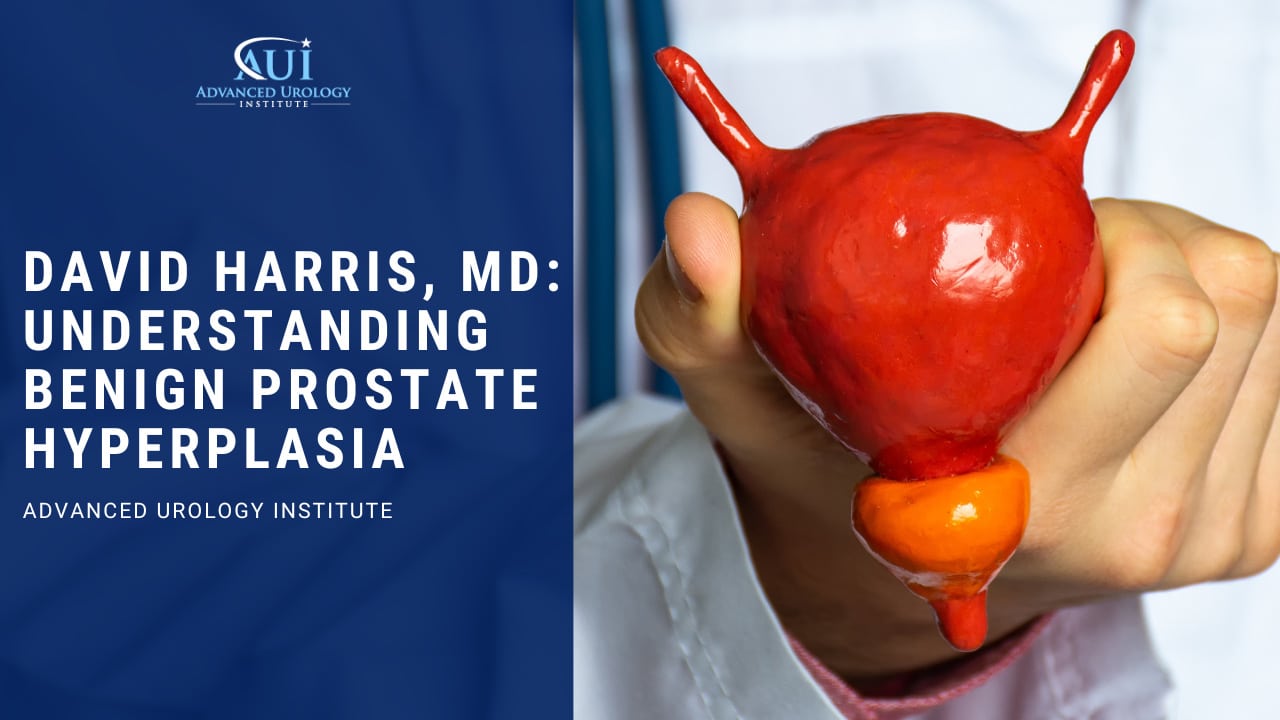





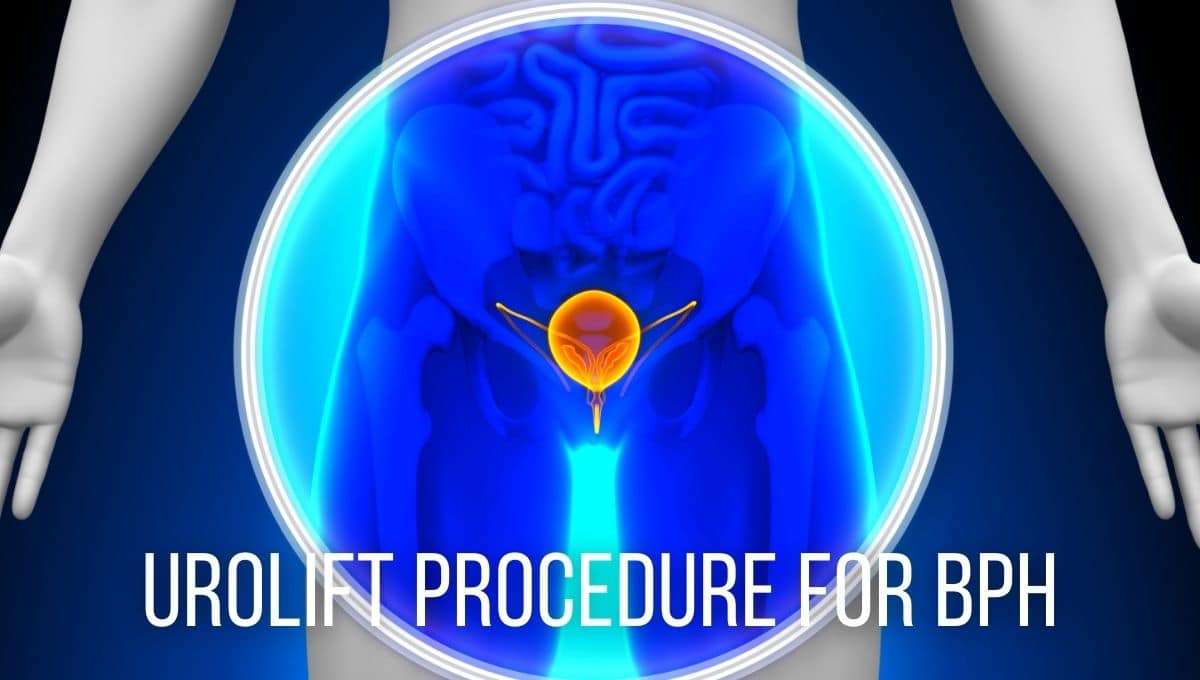
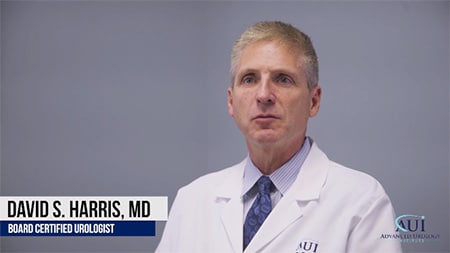 Fortunately for men who suffer from BPH, medical progress is on their side. According to
Fortunately for men who suffer from BPH, medical progress is on their side. According to 
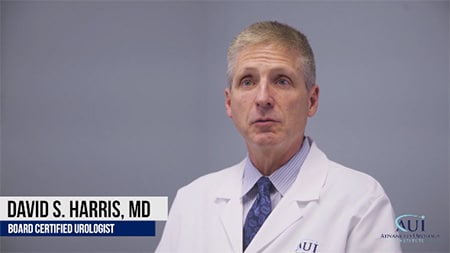 Once an appointment is made with the urologist, doctor and patient can begin discussing symptoms and the diagnostic process. If the patient’s complaints are consistent with BPH, the urologist will proceed with a prostate exam. There are also other simple, non-invasive tests that can be completed at the urologist’s office that will indicate the patient’s urine flow and ability to empty his bladder. More sophisticated testing is available if additional data on the patient’s BPH issue is needed. For example, fiber optic scope evaluations give the urologist the most detailed picture of the patient’s BPH, which can then be used to devise the best treatment plan.
Once an appointment is made with the urologist, doctor and patient can begin discussing symptoms and the diagnostic process. If the patient’s complaints are consistent with BPH, the urologist will proceed with a prostate exam. There are also other simple, non-invasive tests that can be completed at the urologist’s office that will indicate the patient’s urine flow and ability to empty his bladder. More sophisticated testing is available if additional data on the patient’s BPH issue is needed. For example, fiber optic scope evaluations give the urologist the most detailed picture of the patient’s BPH, which can then be used to devise the best treatment plan.
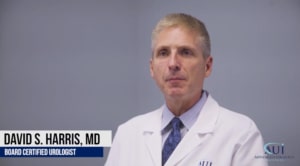 The primary
The primary 






